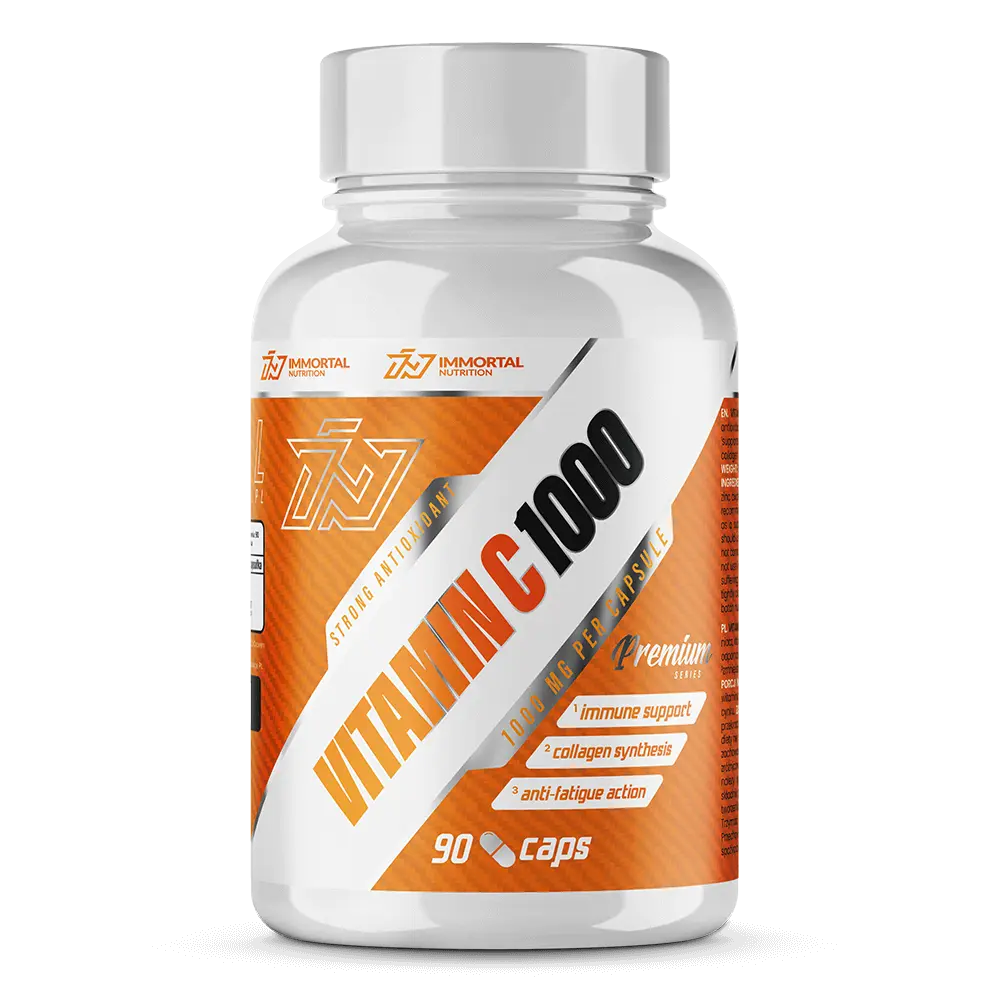Vitamin C 1000 is a potent, one-a-day immune support formula delivering 1000 mg of pure vitamin C (L-ascorbic acid) per capsule. Known for its antioxidant properties, vitamin C helps protect cells from oxidative stress, supports collagen formation, and contributes to the normal function of the immune system. Ideal for periods of increased physical activity, stress, or seasonal changes, Vitamin C 1000 is your daily dose of defense, recovery, and vitality.
✅ 1000 mg of high-quality vitamin C – powerful antioxidant and immune support
✅ Contributes to normal collagen formation for healthy skin, joints, and blood vessels
✅ Helps reduce tiredness and fatigue – ideal for active and busy lifestyles
✅ Protects cells from oxidative stress – supports recovery and defense
✅ Clean and simple formula – no fillers, no unnecessary additives
Take 1 serving daily (1 capsule) with a large amount of water.
Daily serving: 1 capsule
Servings per container: 90
Net weight: 101 g
| Active ingredients | in 1 capsule (one portion) |
| Vitamin C | 1000 mg (1250 %*) |
| * RI - reference intake |
100% vitamin C (L-ascorbic acid), capsule shell (hydroxypropyl methylcellulose), color (calcium carbonate).
May contain derivatives of: cereals containing gluten, sesame seeds, eggs, nuts, celery, crustaceans.
Do not exceed the recommended daily dose. This food supplement should not be used as a substitute for a varied diet. The product is not intended for use by children, pregnant, or breastfeeding women. Do not use in case of hypersensitivity to any of the ingredients. A balanced diet and a healthy lifestyle are important. It is not recommended for use in individuals predisposed to kidney stone formation or those suffering from nephrolithiasis.
Store in a cool, dry place at room temperature, in a tightly closed container, away from light and moisture, and out of reach of children.

